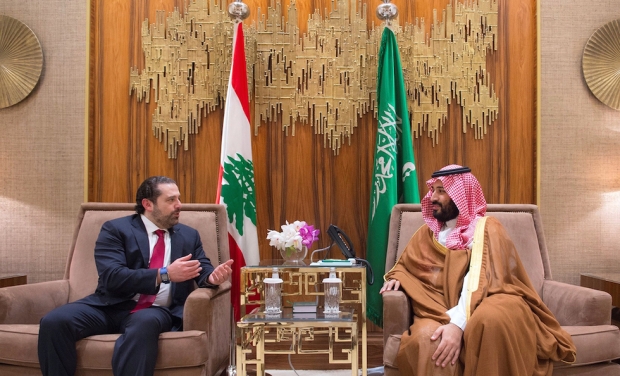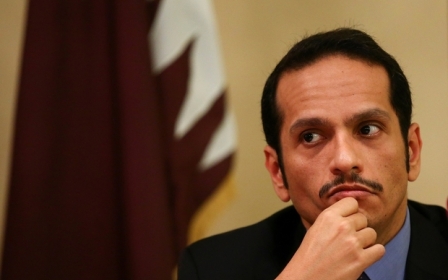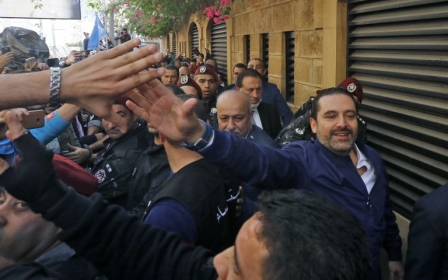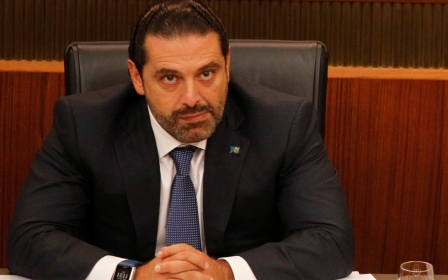How Saudi Arabia's reckless approach in Lebanon is strengthening Hezbollah
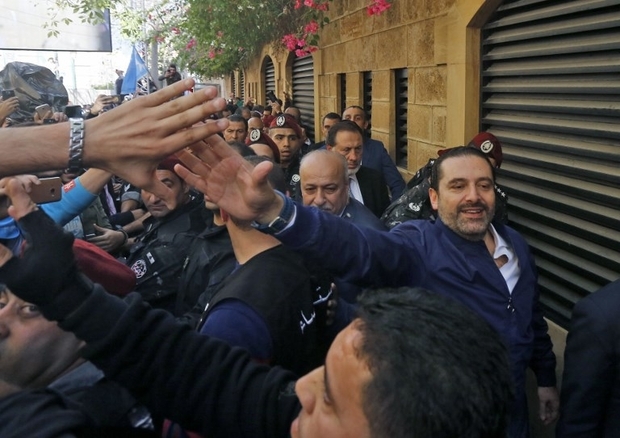
While much has been said and written about the circumstances that surrounded Lebanese Prime Minister Saad al-Hariri's resignation in Riyadh on 4 November, the more important and significant issues are yet to be addressed.
Establishing the truth about what happened to the Lebanese prime minister and what he was subjected to in Saudi Arabia is no longer the issue. Rather, it is the reckless manner with which the Hariri resignation affair was managed by Riyadh leading to the exact opposite of what this move intended to achieve in the first place.
A neutral Hezbollah?
On Monday, in an interview with French TV channel CNews, Hariri reiterated the reasons cited in his resignation letter that forced him to make such a move. He stated that Hezbollah must stop interfering in regional conflicts and accept a neutral policy to bring an end to Lebanon's political crisis.
"I don't want a political party in my government that interferes in Arab countries against other Arab countries," Hariri said, adding, "I am waiting for the neutrality which we agreed on in the government. One can’t say one thing and do something else."
In his rather brief address to the Lebanese nation on 4 November, Hariri stated that he could no longer accept Hezbollah’s hegemony over Lebanese affairs, the involvement of the party in regional conflicts that are of no interest to Lebanon, and its use as a tool in the Iranian expansionist project in the Arab world.
What was intended to be a signal for alignment and mobilisation against Hezbollah and Iran turned into something completely different
From Hariri's point of view, as well as from the point of view of Saudi Arabia and a significant segment of the Lebanese public, it was about time to put an end to Hezbollah's involvement in regional wars and to stop it acting as an armed militia and a political party at the same time.
Irrespective of whether or not Hariri's resignation was a reflection of his own pure assessment of the situation or an indication of a Saudi policy shift on Lebanon and the region as a whole, the real reasons behind the resignation was meant to be a warning signal to Lebanon.
That warning was followed immediately by a Saudi request for an Arab League Council meeting to discuss the activities of pro-Iranian militias in more than one Arab state.
In other words, Saudi Arabia, of which Hariri is a national, and which is considered the main regional backer of his leadership, embarked on a multi-faceted approach to deal with the rising influence of Hezbollah as well as with the other pro-Iranian armed militias that are active in other Arab states.
This campaign is reinforced by the Saudi-American agreement on the need to stand up to Hezbollah, translated into a new set of sanctions against Hezbollah. There have also been a number of reports about a Saudi-Israeli agreement to challenge the Iranian influence in the region.
No matter how sizable the regional and international endeavour, it would not be possible to achieve any tangible objectives without the existence of a Lebanese local actor to confront Hezbollah
What is certain, however, is that no matter how sizable the regional and international endeavour, it would not be possible to achieve any tangible objectives without the existence of a Lebanese local actor to confront Hezbollah.
Hariri, and his political party, Tayyar al-Mustaqbal (al-Mustaqbal Current), represent that actor. Therein lies the significance of the political positions Hariri adopted or may adopt in the future.
Yet the objectives of Hariri's resignation were never achieved. What was meant to be a signal for realignment and mobilisation against Hezbollah - and by association Iran - turned into something completely different.
Within hours of the resignation, Hezbollah circles and allies within the Lebanese president's party, the Free Patriotic Movement (FPM), cast doubt over Hariri's true position and questioned the constitutionality of a resignation announced by the prime minister from Riyadh and without direct communication with the president of the republic.
Lebanese President Michel Aoun stated repeatedly that he would not accept the resignation and that he would wait until Hariri is back to learn from him whether he actually decided to resign of his own free will.
Even Hariri's political party, Al-Mustaqbal, urged him to return to Lebanon as soon as possible. As ambiguity shrouded Hariri's presence in Riyadh, Hezbollah emerged as the protector of Lebanese sovereignty, despite having violated that sovereignty for decades. Aoun did not hesitate to describe Hariri’s detention in Riyadh as an act of hostility.
In the meantime, Lebanese Foreign Minister Jibran Bassil, Aoun's son-in-law and current head of the FPM, embarked on a tour in a number of world capitals, including Paris, London, Berlin and Moscow.
Although Bassil is not known to be a diplomatic genius, his tour earned Lebanon tangible sympathy and triggered implicit as well as explicit criticism of the Saudi position. The German foreign minister’s outspoken and blunt denunciation of the reckless nature of the Saudi policy during recent months triggered a diplomatic crisis between Berlin and Riyadh.
Perhaps with the exception of the US President Donald Trump's administration, most countries with an interest in Lebanon's stability expressed clear indignation toward what looked like not only a foreign country forcing its will on the prime minister of another country but also restricting his freedom of movement.
Iran's interests
There is no doubt that Hezbollah is playing the role of Iran's arm in the region. Hezbollah's leadership do not make a secret of this fact. For the Lebanese party, Iran's interests are given precedence over any other considerations, even if such interests were to pose a threat to Lebanon's stability and undermine its security.
Although the party has participated in all the Lebanese governments over the past decade and endorsed the agendas of these governments, it has not, in anyway, been convinced of the necessity to take a neutral policy towards the conflicts raging in other Arab countries.
Since 2012, Hezbollah has been actively involved in the military effort to defend the Syrian government under President Bashar al-Assad against armed opposition groups that sought to overthrow him.
The Lebanese party has also been repeatedly accused by its adversaries of playing varying roles in Iraq and Yemen; training, organising and arming the militias associated with Iran and its regional strategy.
Almost a year ago, Hariri signed up to the deal that brought Aoun to the presidency and him to the premiership of the country. The deal reflected Hariri’s belief that Iran was winning in its protracted conflict with Saudi Arabia, and that the Saudis had lost the ability to resist Iran's growing influence in Lebanon and neighbouring Arab countries.
Although it is not clear whether Saudi Arabia supported Hariri's decision at the time, it was within such a context that Hariri's government was born, a government in which Hezbollah and its ally, the FPM, controlled two thirds of the seats.
Subsequently, the government turned into a political cover for the encroachment of Hezbollah and its hegemony over Lebanese affairs.
It was inevitable that the confrontation with Hezbollah was going to take place, sooner or later. The problem is that someone in Saudi Arabia decided to trigger that confrontation not in the most convenient of times, and then went on to manage it in a rather reckless manner.
- Basheer Nafi is a historian of Islam and the Middle East.
The views expressed in this article belong to the author and do not necessarily reflect the editorial policy of Middle East Eye.
Photo: Lebanese Prime Minister Saad Hariri greets his supporters upon his arrival at his home in Beirut (AFP)
New MEE newsletter: Jerusalem Dispatch
Sign up to get the latest insights and analysis on Israel-Palestine, alongside Turkey Unpacked and other MEE newsletters
Middle East Eye delivers independent and unrivalled coverage and analysis of the Middle East, North Africa and beyond. To learn more about republishing this content and the associated fees, please fill out this form. More about MEE can be found here.



